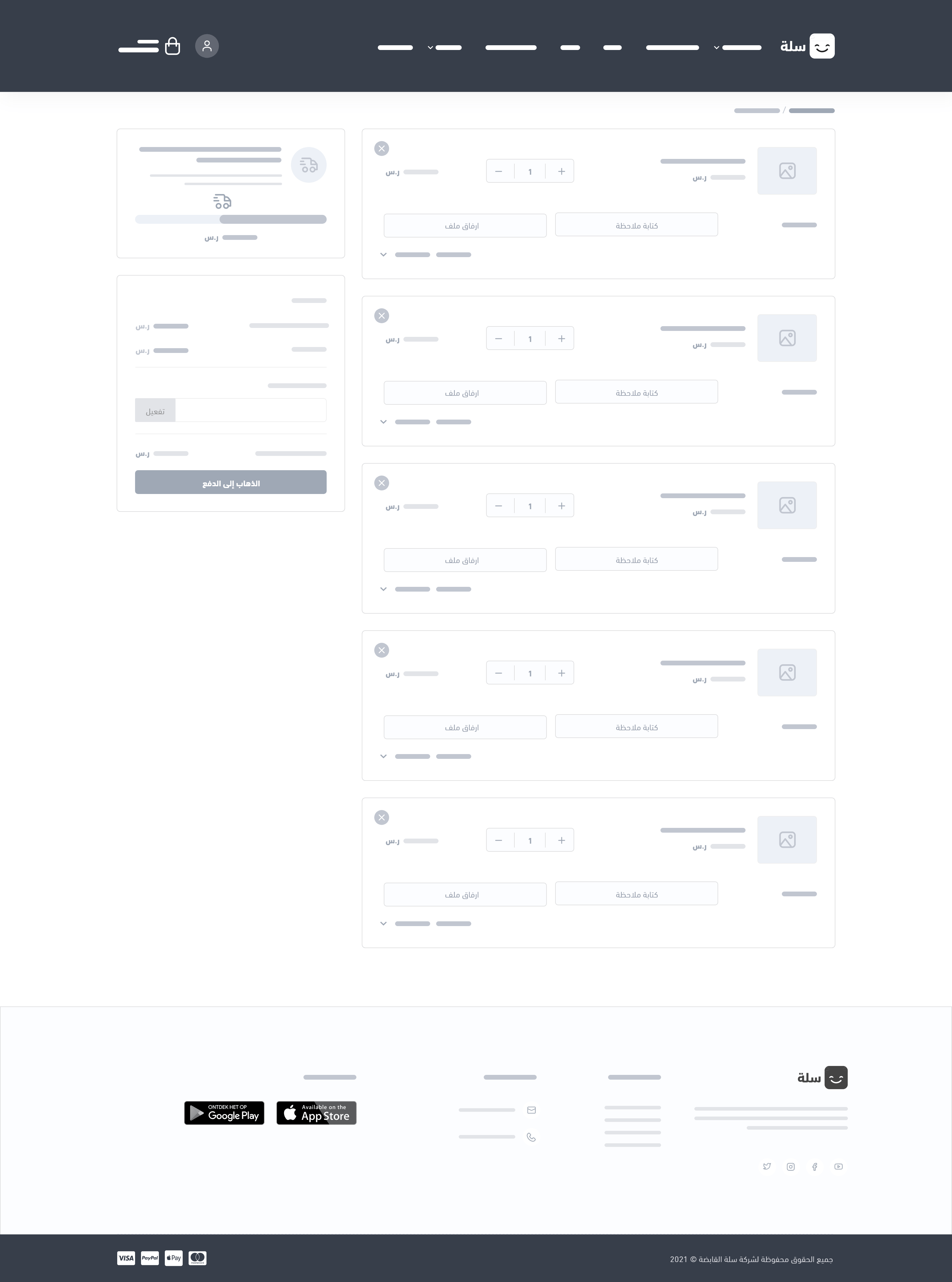Cart
cart page template renders the shopping cart page where customers can check what they have added to their shopping cart, and then simply proceed for checkout. The general view of this page displays the list of the items added to the cart, so then the customer can modify any quantity or remove any item.In addtion, can upload any files or attach any note along with the cart's items.
Example

Variables
CartPage
Components
breadcrumbs component. The {% component breadcrumbs %} line returns the current navigation for the user.JS Web Components
Hooks
cart page template calls for the following hooks in order to inject extra information.Usage
cart page template consists of several parts, which are a form to display all of the cart's items/product, free shipping option, and any added discount.Cart items form
<form>, the developer can display all of the items added to the cart. All of the items can be displayed along with their options by using a for-loop statement as follows:Free shipping
cart.free_shipping_bar.has_free_shipping, the developer may check if there is free shipping selected, and then build the logic to handle this part.Apply Copoun and discount
store.settings.cart.apply_coupon_enabled variable. Accordingly, any given discount can be shown using the cart.real_discount varible.Educational Clip
Modified at 2025-03-04 12:54:02
